Big data has become an important strategic resource and an issue of concern to various countries and fields in recent years. With the rapid development and application of big data technology, ensuring the integrity, availability and confidentiality of network data without being affected by the security threats of information leakage and illegal tampering has become the core issue to be considered for the healthy development of informatization and personal information applications by government agencies and institutions.
On December 20-22, 2019, the “2019 International Conference on Big Data and Security” was held in Nanjing, which was jointly sponsored by NJIT, University of Oulu, Curtin University, King Saud University, Zayed University of United Arab Emirates, Jiangsu Computer Society, Jiangsu Association of Artificial Intelligence and other domestic and foreign universities, research institutions and related academic organizations. Experts, professors and scholars in the field of big data and security from China, the United States, Finland, Australia, United Arab Emirates, Saudi Arabia, Pakistan and other countries attended to discuss the current security and privacy protection technologies in big data, Internet of Things, artificial intelligence, block chain and other fields.
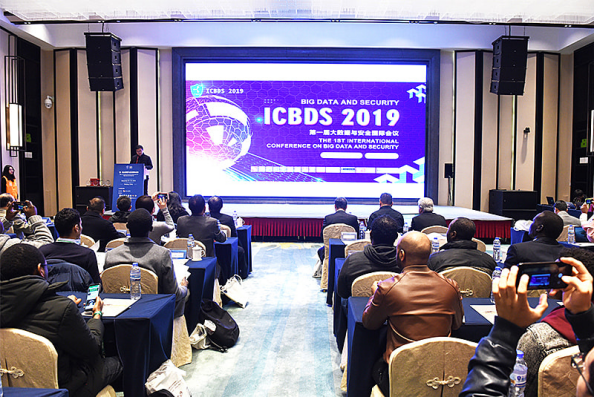
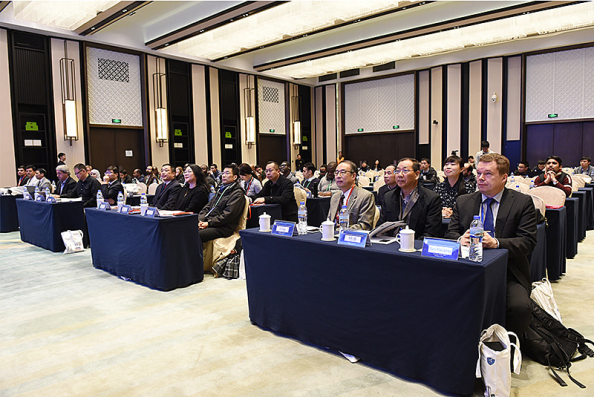
NJIT President Shi Jinfei attended the opening ceremony on the morning of December 21 and addressed a speech. President Shi mentioned that the current advancement of information technologies has significantly affected people’s lifestyles and rapidly developed the global economy. The information technology industry has developed quickly, and the fundamental role of network information security has become increasingly prominent. With the theme of "Big Data and Security", this conference is an opportunity for experts to meet and discuss different opinions. He believed that by taking advantage of this conference, NJIT could enhance academic exchanges and technical cooperation with universities worldwide in the field of big data and security, which would produce superior cooperation outcomes.
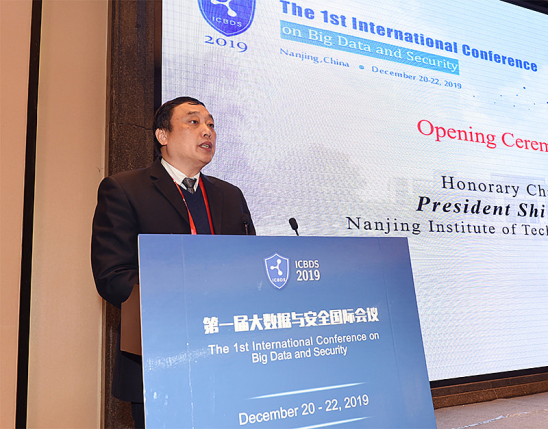
During the conference, Regents Professor Yi Pan (Georgia State University), Professor Çetin Kaya Koç (UC Santa Barbara), Professor Yang Xiao (University of Alabama), Professor Muhammad Khurram Khan (King Saud University), Professor Vidyasagar Potdar (Curtin University), Professor Pan Zhaoqing (Nanjing University of Information Science & Technology), and Professor Asad Masood Khattak (Zayed University, United Arab Emirates), presented seven thematic reports and shared cutting-edge technologies in this field with colleagues in the industry. Professor Kari Liukkunen and Professor Tero Päivärinta (both from University of Oulu), shared with college students the topic of how to study and research in the field of big data. The meeting also arranged a series of sub-reports on seven topics.
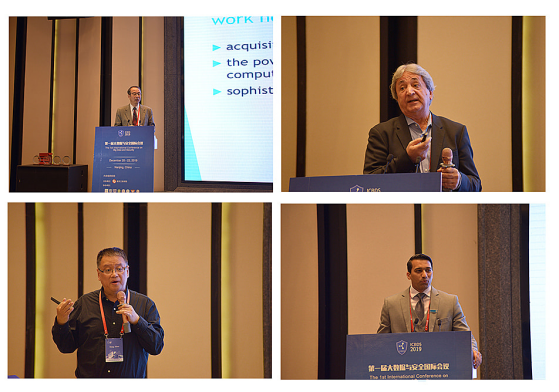
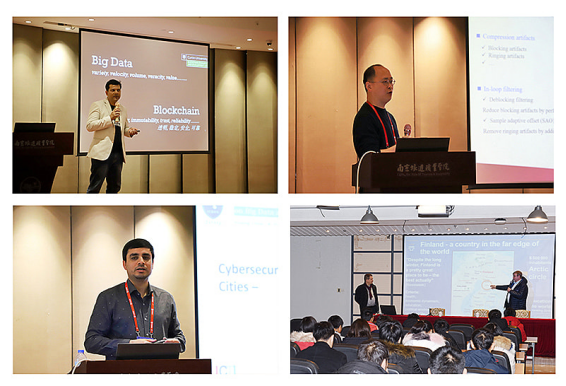
“In the era of big data, data brings great value, but it also raises issues regarding security and privacy protection for users. Protecting users’ security and privacy and preventing sensitive data leakage in the big data development and application has become a new challenge.” “With the rise of the Internet of Things, there are increasing numbers of smart home devices. When security issues occur, users will also face the threat of privacy leakage. Its potential consequences even exceed that of the mobile phone security issues.” Focusing on topics including big data collection, deep learning, network security challenges in smart cities, the importance of security in 5G Internet of Things, and the development of privacy protection technology, guests attending the conference put forward novel opinions. In the era of Big data, users must choose either convenience or privacy protection. Experts unanimously agreed that big data presents an impressive picture of smooth information flow, high efficiency and convenience for users, but the trading market behind it is still in the initial extensive stage. Data transactions introduce dual opportunities of market and policy, but loose supervision and users’ neglect of privacy could also lead to chaos in the data market. Achieving a reasonable balance between management and protection is an issue that must be resolved.
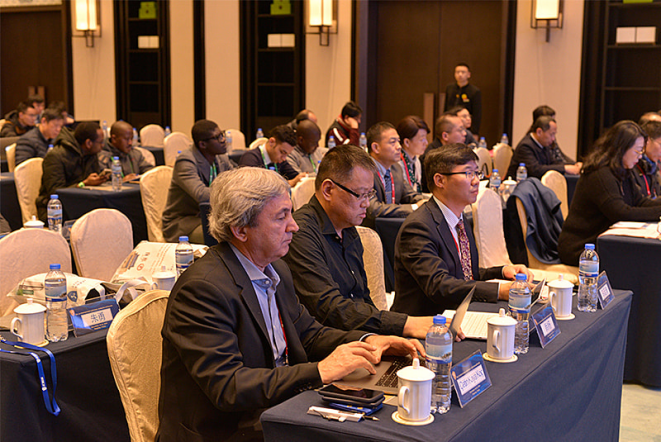
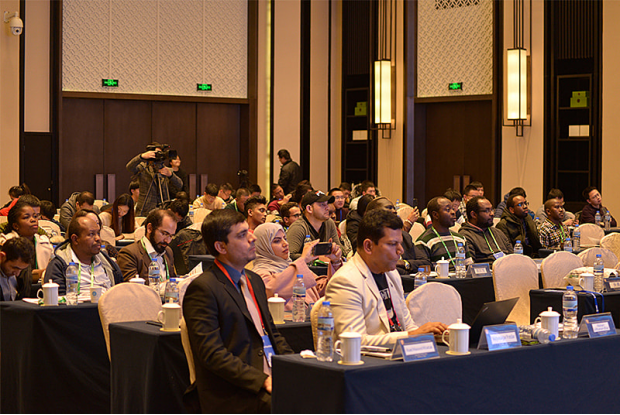
This conference not only provided crucial academic input, but also assisted with teaching staff development and personnel training at NJIT. Nine foreign experts attending the conference were employed as visiting professors of NJIT. At the visiting professors’ appointment ceremony held on the afternoon of December 21, NJIT President Shi Jinfei presented them with letters of appointment, and sincerely thanked and welcomed them to NJIT, hoping that experts would support and develop the establishment of computer-related disciplines and the training of applied talents in big data and security. At the employment ceremony, the newly-appointed professors said that they intended to develop international cooperation in scientific research, academic interaction, team building and personnel training, and contribute to the internationalization of NJIT.

It is reported that the conference received 255 papers from 7 countries and regions around the world. The most impressive papers would be recommended for publication in SCI journals, including IEEE Access, Electronics, Sensors, Computer Modeling in Engineering & Sciences. After selection, Professor Kari Liukkunen and Professor Geng Yang received the “Outstanding Contribution Award”, and the paper written by Lv Zongsheng and other students received the “Best Student Thesis Award”. At the closing ceremony, Yang Zhengyu (Member of the Standing Committee of the Party Committee and Vice President of NJIT) presented awards to recipients and congratulated them. He also said that this conference established a suitable exchange platform for experts, scholars, industry executives and students from education, industry and government agencies. By utilizing this platform, they have enhanced mutual understanding and established friendly relationships. He expected that there would be additional similar academic exchange opportunities in the future, providing broader and improved information exchange and sharing for research into big data privacy and security, and providing superior support for global economic and social information development.
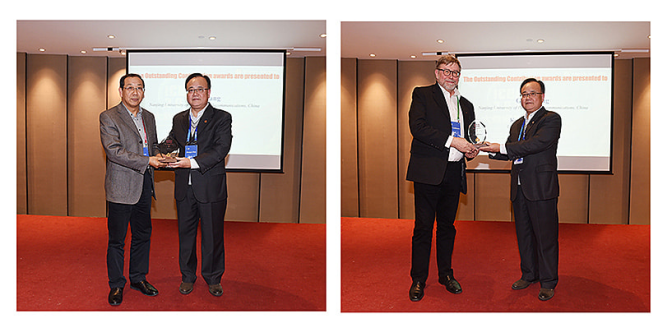
Principals of relevant departments, Party and administrative executives of the School of Computer Engineering and representatives of teachers and students also attended the meeting.

